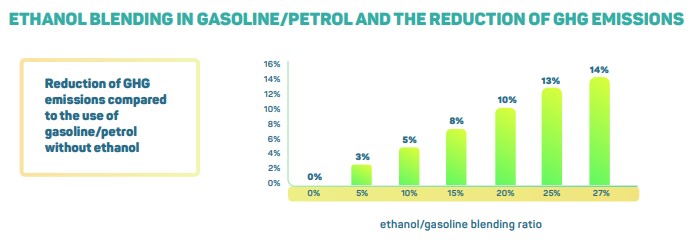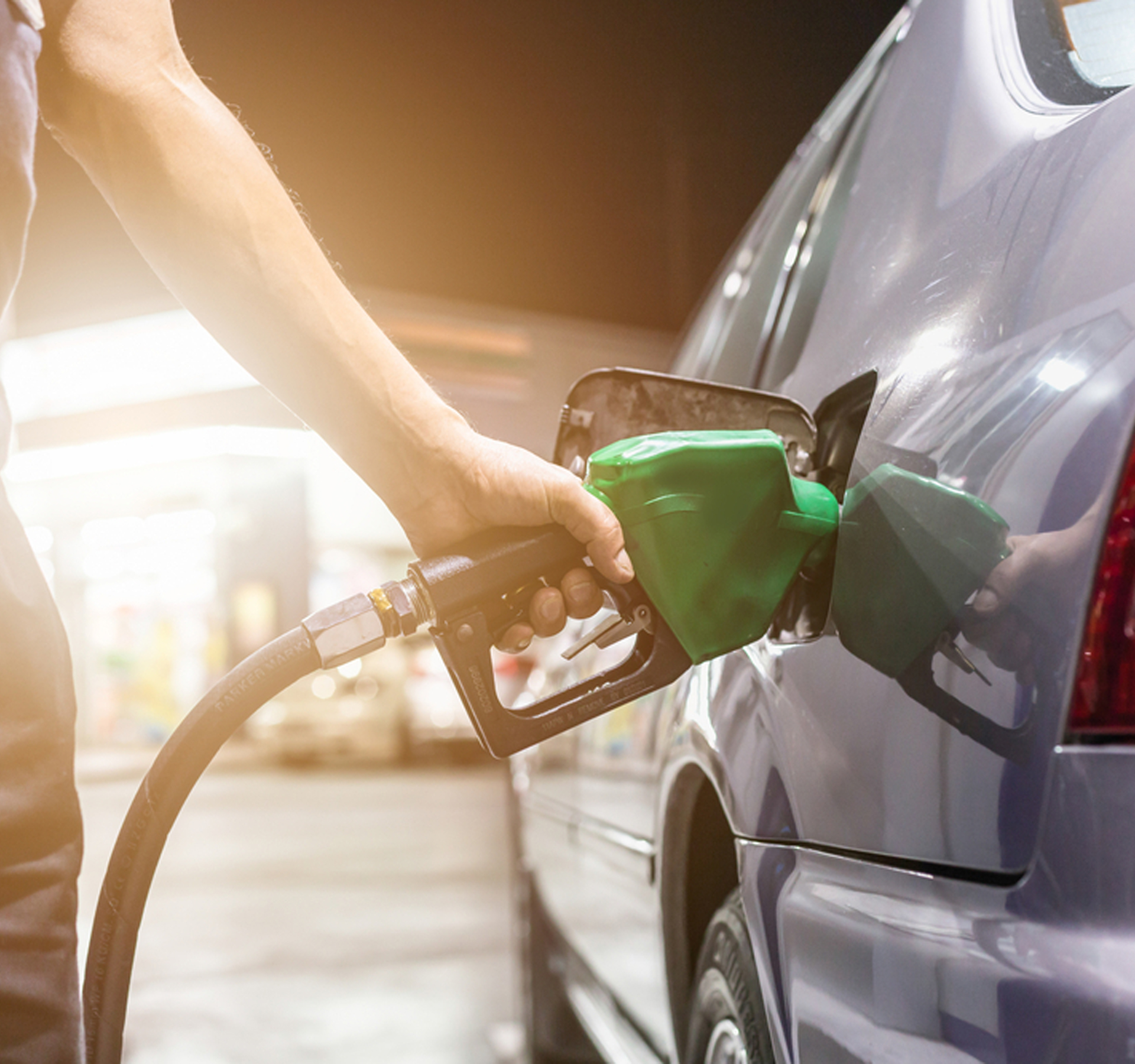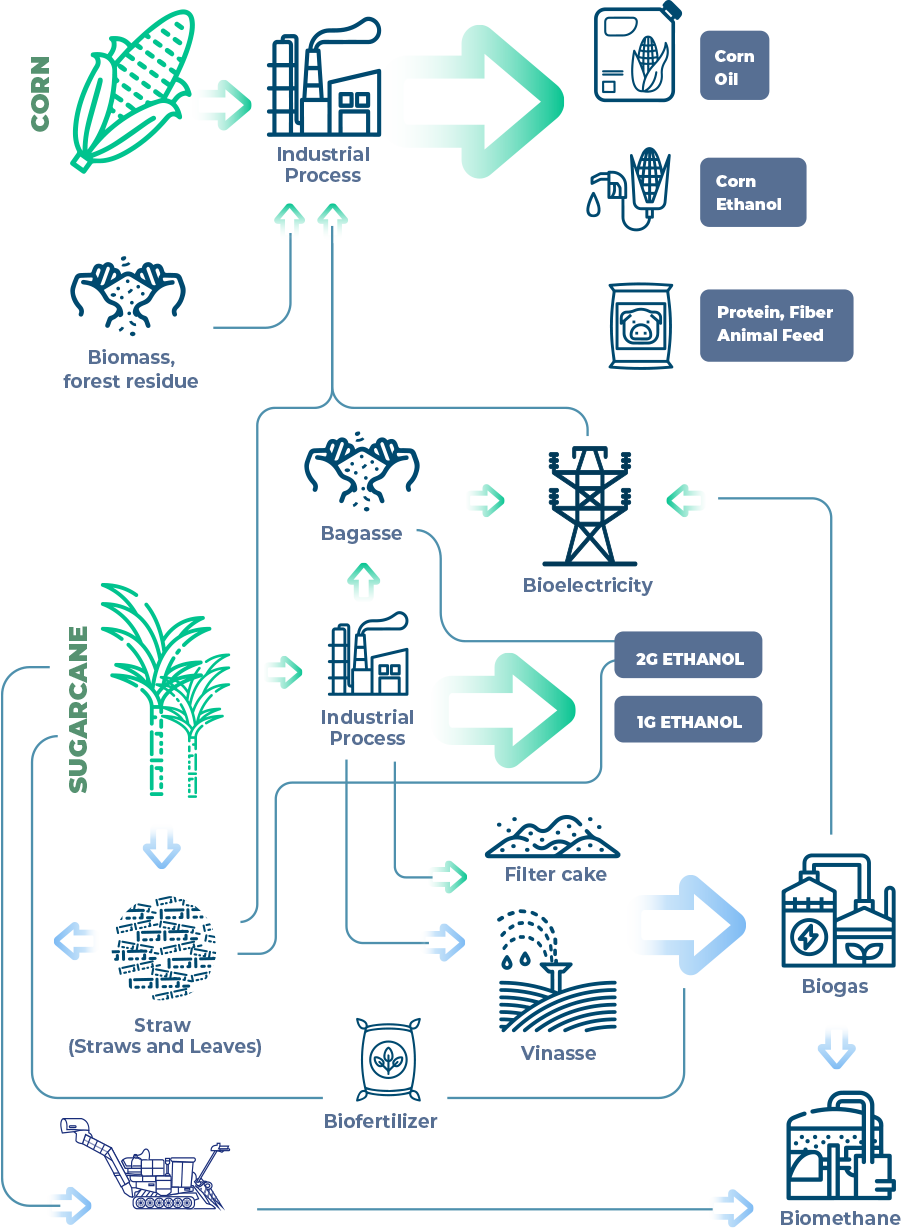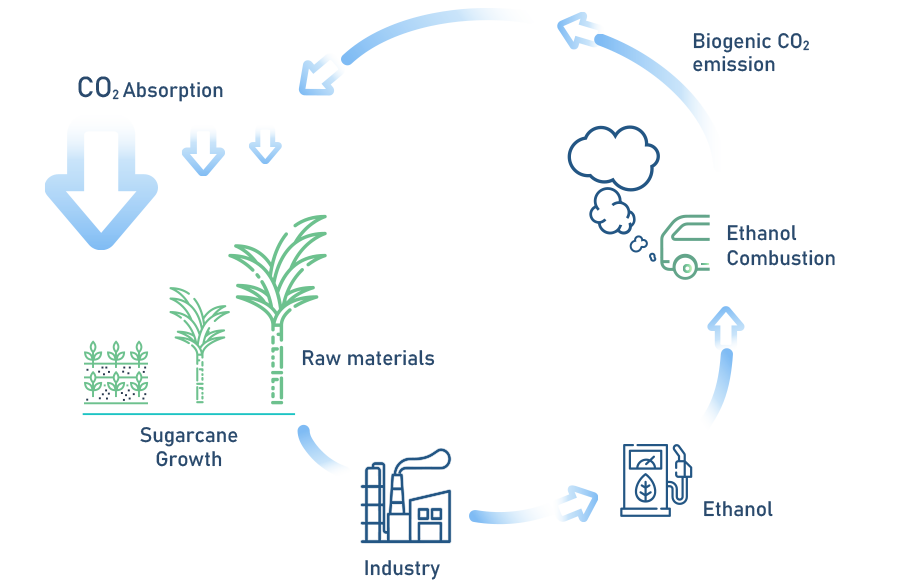ETHANOL BLEND
Transport is responsible for about ¼ of global greenhouse gas emissions (GHG). There is no single solution to reduce emissions. Urgent measures and complementary solutions are needed. Ethanol as a decarbonisation tool: present in more than 70 countries, which account for around 75% of the world gasoline/petrol market.
Flex fuel vehicles are built with a technology that allows them to run with 100% ethanol, fossil fuels or any mixture of the two. This gives drivers more choice and, when choosing ethanol, empowers them to help reduce air pollution. Ethanol saves up to 90% GHG emissions, when compared to fossil fuels.
To fuel sustainable mobility, we need to continue investing in more efficient vehicles, new technologies, and low carbon fuels. Ethanol mixed with gasoline/petrol reduces fuels’ carbon footprint. Combined with more efficient vehicles, this can bring additional benefits in terms of emissions when considering the entire life cycle of the product.

FLEX FUEL
Flex Fuel Vehicles (FFVs) have been present in the Brazilian automotive market since March 2003, when mass production and commercialization significantly increased in Brazil and accelerated the race to produce alternative fuels. In just over 17 years, this technology has come to dominate the Brazilian market. In recent years FFV have accounted for 98% of new cars sold nationally. Now, 80% of vehicles (30 million units) and 34% of motorcycles (5 million units) in Brazil are flex-fuel.
This major shift in vehicle production has brought numerous environmental and economic benefits to the country. From March 2003 to 2022, ethanol consumption (anhydrous and hydrous) saved 600 million tons of CO2eq being emitted into the atmosphere. By way of reference, it would require planting 4 billion native trees over the next 20 years to achieve the same CO2 savings. The use of ethanol in Brazil over the past two decades, has resulted in saving over 100 billion liters of fossil fuels from being consumed and imported, a cost savings estimated at USD 50 billion.

CIRCULAR ECONOMY


